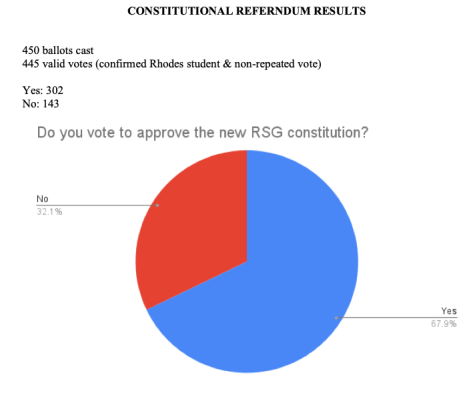Nation-Wide Update on Title IX
May 3, 2021
You have most likely received numerous emails asking you to complete online training due to the new Title IX policies that were recently implemented on August 14. However, what exactly are the changes that have been made, and how will they affect our campus? Hopefully this will answer all of your questions.
Rhodes College Vice President Dr. Sherry Turner ‘84 stated that over the summer, the US department of education pushed to make changes to federal Title IX policies. These changes include acknowledging sexual misconduct within all kinds of relationships, narrowing down what misconduct is protected under Title IX, and removes liability of the university if the sexual assault of a student occurs off campus and not during an official school activity; this includes study abroad.
In previous academic years, Title IX has protected victims of sexual misconduct by including all types of misconduct. As of August 14, these parameters have been narrowed down to misconduct that prevents a person from receiving an education at their institution. There are now official criteria that a complainant must meet before continuing under Title IX procedures. According to Rhodes’ current Title IX Coordinator Ms. Inez Warner, “There are definitional changes for sexual harassment. It is either quid pro quo, or unwelcome contact that a reasonable person would find or determine so severe, pervasive, and objectively offensive that it denies a party equal access to an education, or activity. For example, I could think all of these things, but it does not deny me of my education, so it would not be under official Title IX procedure and policies.”
As for off campus and study abroad incidents, these are no longer under the school’s jurisdiction, therefore, they are no longer under official procedures for Title IX. When asked how this would affect incidents at an off-campus event that was organized by Rhodes students, Ms. Warner said “We have control over the respondent and that organization, but it would not be covered under the formal regulations.”
How will these changes affect our community? The only effect for us is that some incidents will not go through Title IX procedures, however, Rhodes is actively making sure that everything else is still the college’s responsibility. Victims should not be deterred from reporting misconduct because Rhodes policies are more broad than that of Title IX. This is unique to Rhodes College campus and may not be recognized by other institutions. If an action occurs off campus, outside of a school event, or does not prevent the victim from their education, Rhodes will do everything they can to protect and help the victims. However, according to Dr. Turner, “There are a lot of people that are afraid the new changes will make it more difficult for victims to come forward about instances of sexual misconduct, but I think it’s going to be all the more important for Rhodes to do work shifting the culture. It places more influence on us as a community to change the culture and raise awareness for sexual misconduct.”
Mary Camille Lovely ‘21, the president of Culture of Consent, explained a new policy specific to Rhodes will provide a courtroom procedure for the reported incident. “This idea of equally supporting both parties in an incident of sexual misconduct is about innocence until proven guilty.” This means the accused, and the accuser, will be able to present their personal accounts to staff and peers involved in these procedures, such as Ms. Warner. On this level, according to Dr. Turner, “These new policies will place equal emphasis on both respondent and complainant. We have yet to see what that will look like, but the work we have to do is really about shifting the culture.”
If you have any questions or need resources about sexual misconduct, please email Ms. Warner ( warneri@rhodes.edu ), but note the Health and Counseling Center, as well as the chaplain and Culture of Consent, are the only non-mandatory reporters on campus, should you need counseling and support.















Richard • May 12, 2021 at 2:27 pm
https://www.washingtonexaminer.com/opinion/op-eds/if-black-lives-matter-due-process-must-matter?utm_source=msn&utm_medium=referral&utm_campaign=msn_feed The author of this article says it better than I ever could.